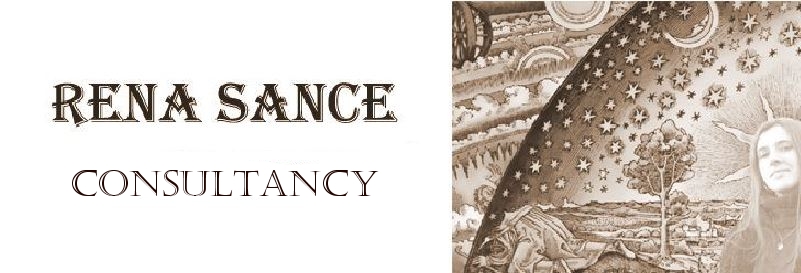Astrology has been in human interest long before the dawn of civilization. As a matter of fact - it had been a significant force behind it. Astrology was born when ancient men looked up in the skies and had seen the wandering Sun and Moon and the little spots known as planets - Mercury, Venus, Mars, Jupiter, Saturn. Hunter-gatherers communities were already interested in the movement of the celestial bodies. There are marks in stone relating to the visible constellations all over the world. It is now widely believed that many of the ancient signs and symbols drawn or carved in stone refer to the 'constellations' and celestial bodies and their seasonal movement.
[carved points]
The Neolithic people, the first farmers took 'astrology' as their guide to the settled life. They needed a special calendar to facilitate the community living based on sawing and harvesting the crops. The most famous ancient calendar of this sort is Stonehenge.
[Stonehenge]
Astrology had been banned by some religions in the Middle-Ages; it had a quite important return in Rennaisnance; substantial defiance in the Age of Reason, and a complete mish-mash in 20th century, yet encouraging. We have now only realized, that after 5000 years since civilization and the astrological system was born in the Middle East, we have come back full circle to the ability to study astrology with the necessity of gathering the facts and data.
[old astro-map]
With the use of modern technology, astrologers can gather data and make important comparisons - to bring into light more reliable results. This has always been a struggle in astrology - to have a proper data and a proper analysis of that data. The data has been very scarce since new astrological dawn in the early 20th century.
Nowadays we see very little of the 'stars up in the sky'. So we dismiss the knowledge. It is not part of our paradigm - the set of rules upon which we live. It does not mean however that the heavenly bodies do not exist. We have little (or none) opportunities to observe the night sky - what is going on up there, how it changes, every hour of the night.
[night sky with positions of some planets]
So how we can be sure that those bodies do not affect our being? Because they are too far away? It is known that the movement of the Moon and its phases do influence people on a subtle level. This subtle level, invisible to modern measurements, has been an evocative point to explain the planets mysterious action on a given date - an event or a birthday. The ancients spend hundreds if not thousands of years comparing the positions of Sun, Moon, the planets and the constellations. They noticed that certain alignments relate to special occurrences here on Earth - from major to minor.
[ancient graph of astrologer]
Kings rising and downfalls. Personalities of ordinary people born under a specific time. Most of the myths relate to those observations. Religions, especially Christianity is full of astrological symbols, even if its authorities want to deny it.
[Christian zodiac wheel]
Only in a tribal environment, in small settlements, when people lived close to each other, they could observe different character traits of the individuals. They noticed it is due to the time of the year a person was born. It was a 'natural psychology', and it eventually led to science. Intrigued by their discovery they had to find ways to investigate further because they saw that all living organisms on Earth are subject to cosmic cycles. One of them is the Wheel of the Year.
[wheel of the year]
Astrology can be seen as a root of not only of all science - there was a need to calculate precisely the movement of the Sun and Moon and how they relate to each other - quite a complicated task. It also developed writing, literature, drama, mathematics, geometry, astronomy, agriculture, medicine, and so on - many of the ingredients of our culture.
On how important astrology had been, one may only realize that it survives to this day and is ever-present. The seven days of a week - from the day of the Sun(day), then Moon, and following all the planetary position in the Solar System, using the names of Anglo-Saxon and Norman gods. More about it in The Magical Seven.
The twelve months of the year are another legacy of the Sumerian composition of the sky - how and why they have divided the year into twelve, not ten months, for example. There are many direct and indirect pieces of evidence of the workings of astrology into our very fabric of life.
